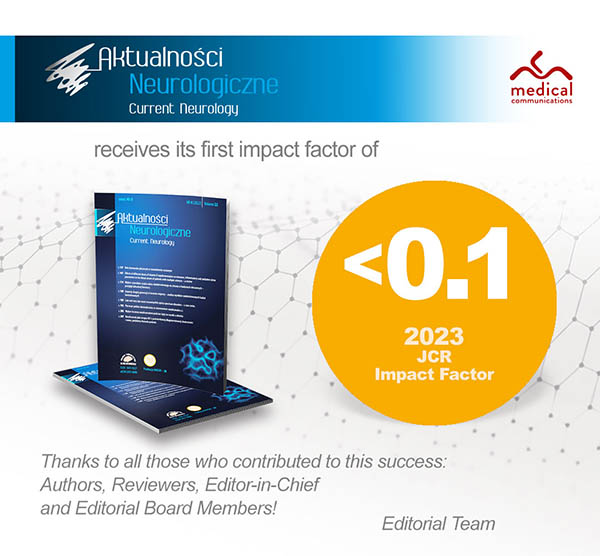Role of androgens in the pathogenesis and clinical course of multiple sclerosis. New therapeutic possibilities
Małgorzata Turniak, Andrzej Głąbiński
 Affiliation and address for correspondence
Affiliation and address for correspondenceMultiple sclerosis is an autoimmune disease that affects the central nervous system. An autoimmune reaction directed against myelin components leads to the degradation of sheaths surrounding axons of nerve cells, thus affecting the ability of the nerves to conduct electrical impulses to and from the brain. Despite extensive studies, the aetiology and pathogenesis of this disease is still not clear. It has been shown that the interplay between genetic and environmental factors is responsible for multiple sclerosis development. The average female-to-male ratio at a typical age of disease onset is around 2.0. It means that women suffer from multiple sclerosis twice as often as men. It has also been reported that the clinical course of the disease is different in women and men. Studies showing that the female-to-male ratio is not observed in paediatric patients, suggest that sex hormones play a role in the pathogenesis of multiple sclerosis and susceptibility to this disease. Numerous studies have reported that androgens affect neural and glial cell survival in vitro. In addition, the positive effect of both endogenous and exogenous testosterone on the clinical course of multiple sclerosis in animal models has been proven. Pilot studies concerning the treatment with testosterone and selective androgen receptor modulators have shown promising tolerance and no severe side effects, suggesting that they may be good candidates for a new therapy for multiple sclerosis patients.








